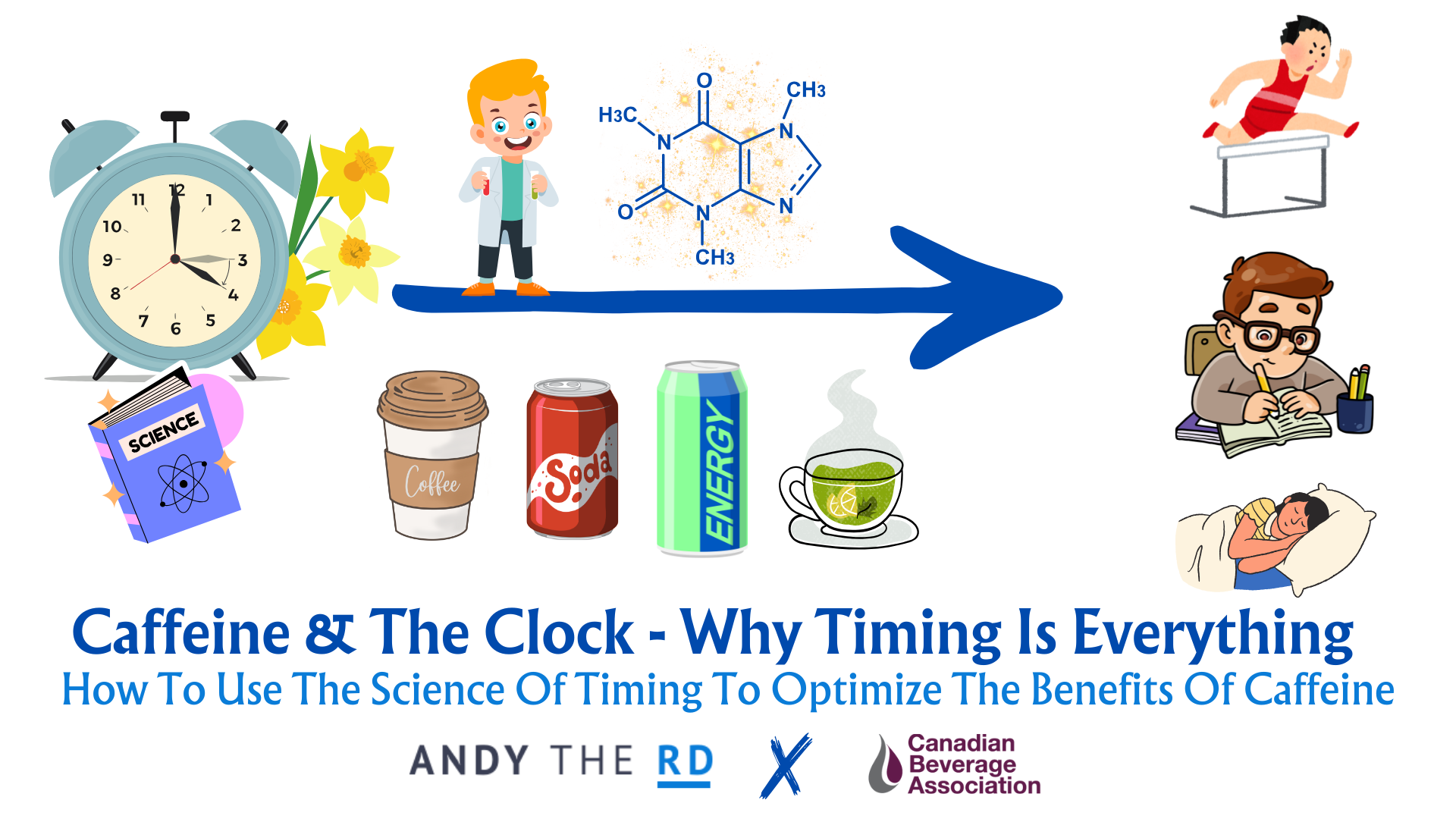March is Caffeine Awareness Month which makes it the perfect time to review relevant and topical science in caffeine consumption. This month, let’s determine together whether timing is everything when it comes to caffeine intake.
The following content is sponsored by the Canadian Beverage Association.
I’m thrilled to be collaborating with them once again as their support allows me the time to explore and create content on the subject of caffeine.
If you haven’t guessed already, this year’s theme is all about TIMING – specifically how to leverage the timing of caffeine intake to get the most benefit.
Let’s get to the good stuff!
Caffeine Context – Where Do We Get It From?
Let’s set today’s stage by taking a closer look at a fascinating study that was published earlier this year in the Food and Chemical Toxicology journal.
While I generally prefer Canadian sources, this study is particularly relevant to today’s content as it’s recently published and has a large sample size.
Here are the findings:
- Nearly seven in ten Americans consume at least one caffeinated beverage per day;
- Coffee (69%) is the biggest source of caffeine, followed by soft drinks (15.4%), tea (8.8%), and energy drinks (6.3%);
- Average caffeine intake (210mg) is well below the recommended maximum daily intake of 400mg set by both Health Canada and the FDA; and
- Caffeine intake is going up with coffee playing a bigger role than before.
The big picture message here is that caffeine plays a big role in many people’s lives in its various forms making it important that we understand how to incorporate it in our lives.
Timing is a big part of that, let’s find out why.
Caffeine Intake & Cognitive Performance
Upon consumption in its various forms, caffeine usually reaches peak levels in our blood stream within 15-120 minutes after ingestion but, depending on a range of contextual and individual factors, can also take 30-60 minutes.
It is perhaps unsurprising then that there is experimental evidence demonstrating a 100mg dose of caffeine (the equivalent of ~1 cup of coffee) provided one hour before a university lecture led to students self-reporting feelings of alertness, concentration, and mental clarity.
In fact, it is a relatively well accepted phenomenon that young adults do not perform as well in the morning hours and the strategic use of caffeine prior to early morning lectures or examinations could be an effective strategy to mitigate this reality.
Caffeine Intake & Physical Performance
In 2021 the Journal of International Society of Sports Nutrition offered comprehensive guidance on the optimal use of caffeine for improving performance in various sporting endeavours.
These improvements include but are not limited to sprinting, jumping, throwing and both aerobic and anaerobic endurance – thus covering a wide variety of physical activities.
Their work generally concluded that 60 minutes prior to when peak performance is desired is the most common and likely most optimal timing for caffeine ingestion.
Both energy drinks and pre-workout supplements containing caffeine were amongst the delivery methods studied and found to be effective for performance purposes.
If you use caffeine to your advantage during your workouts, the introduction of Health Canada’s new supplemented food facts table has made it easier to be aware of the caffeine content in pre-packaged foods and drinks.
For example, all caffeinated energy drinks must now have the statement “high caffeine content”, a supplemented food caution identifier, and relevant cautionary statements.
Caffeine Intake & Sleep
In last year’s piece of CBA sponsored content I explored at great length the relationship between caffeine timing and its influence on sleep.
To summarize, a large review study found that when consuming moderate doses of caffeine ( ~100mg) doing so around 9 hours before bed will significantly reduce the risk of that caffeine consumption negatively influencing your sleep quality and quantity.
With that being said, however, a recently published trial determined that 100mg of caffeine up to 4 hours before bed did not compromise sleep quality but a larger amount did. For more information, review that piece here.
This speaks to the individual variation that is inevitable in response to caffeine intake and why it is advisable to tune into the influence of caffeine on sleep and performance and reconcile your body’s feedback with what the best available science has to say.
Final Thoughts
The totality of the latest and greatest scientific evidence teaches us that timing is an important factor when it comes to optimizing the positive influence of caffeine on our physical and mental performance.
Most people will receive the peak benefit of caffeine intake when consuming it around ~60 minutes before these benefits are most needed, but individual variation and experience must always be valued.
Until next time,
Andy De Santis RD MPH




